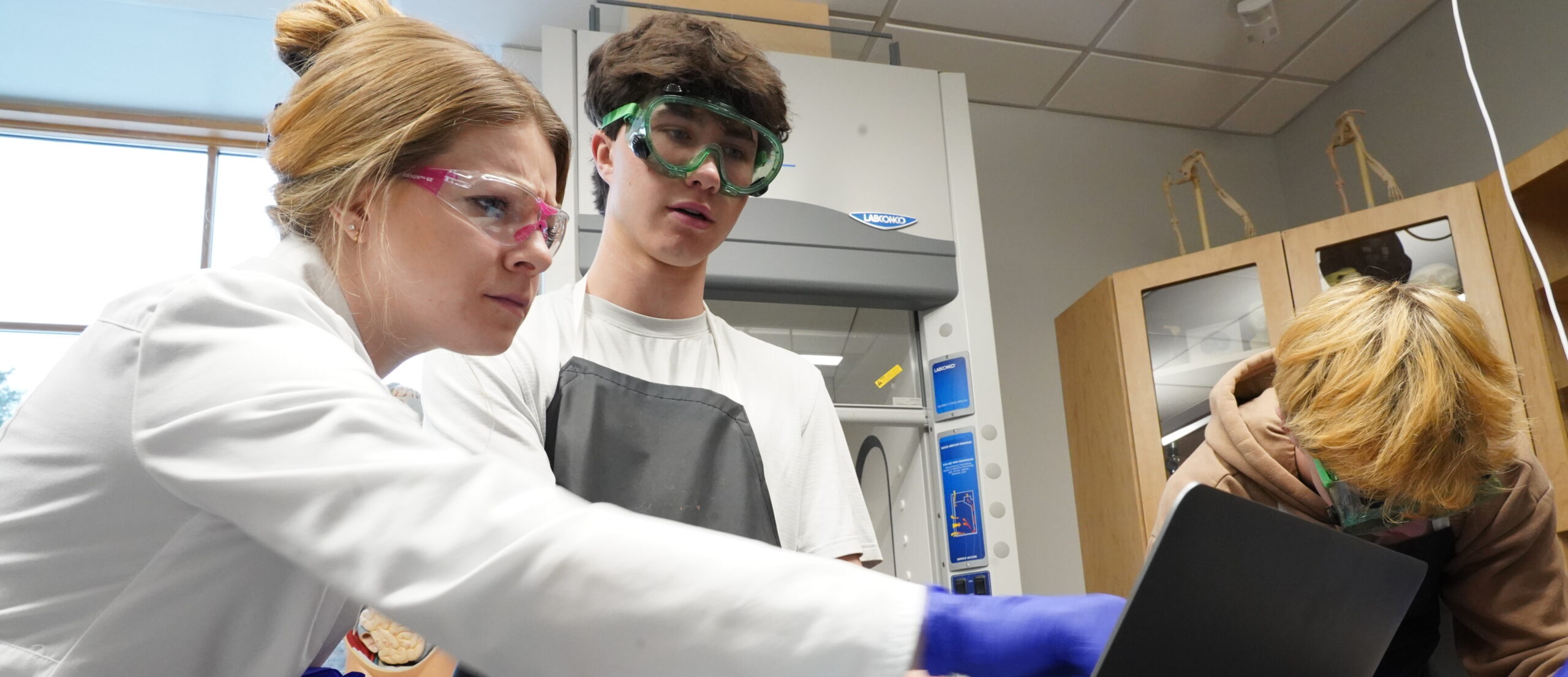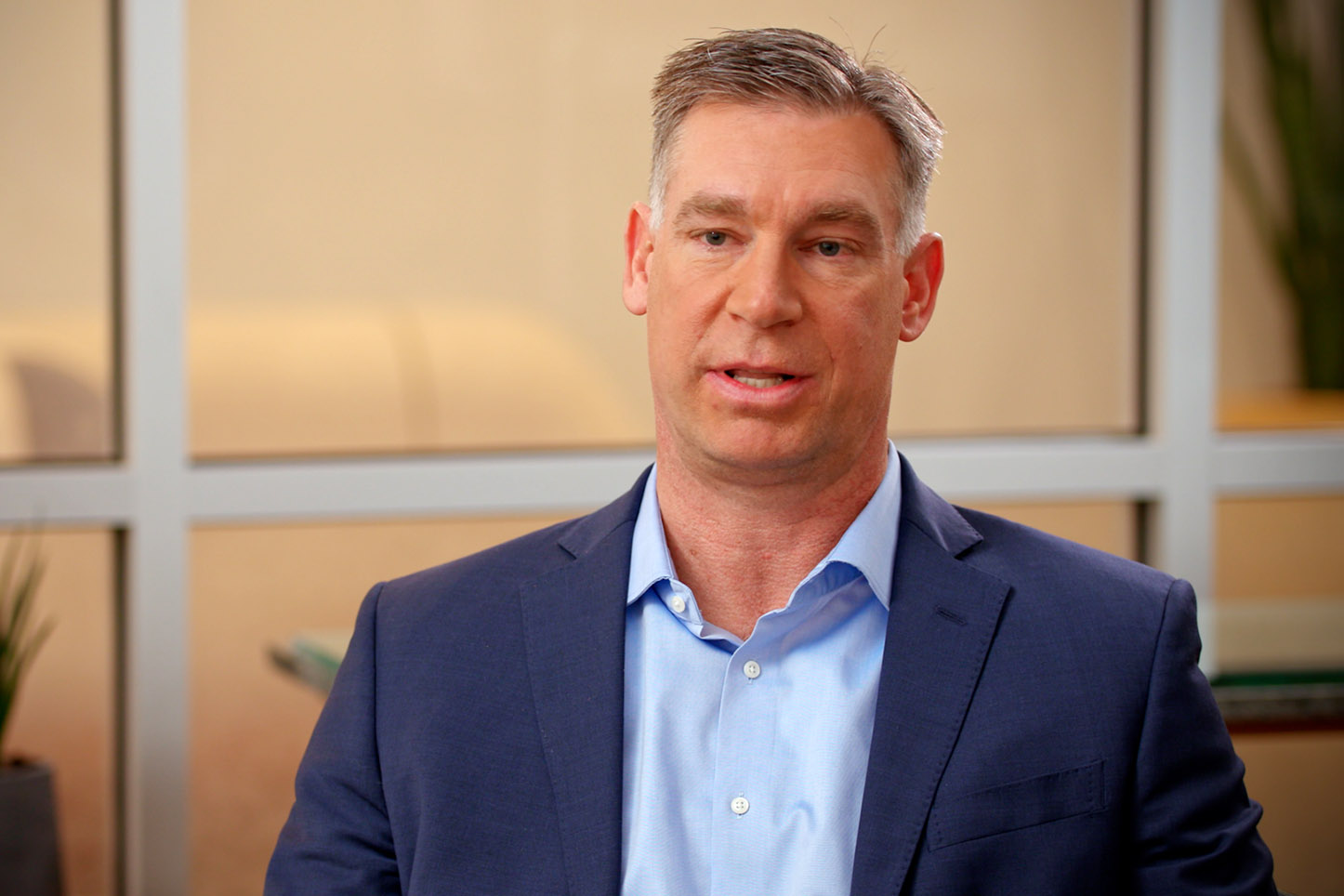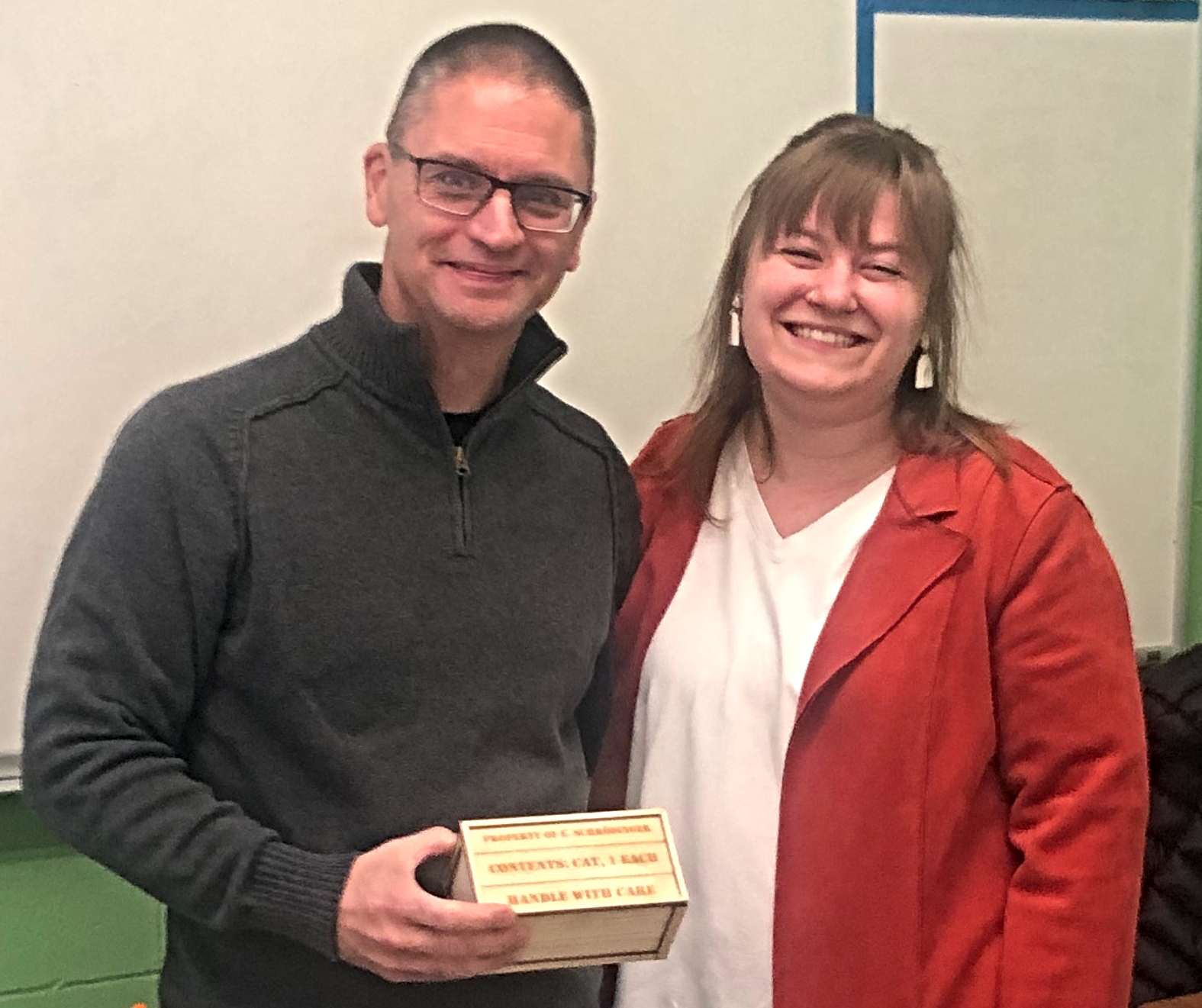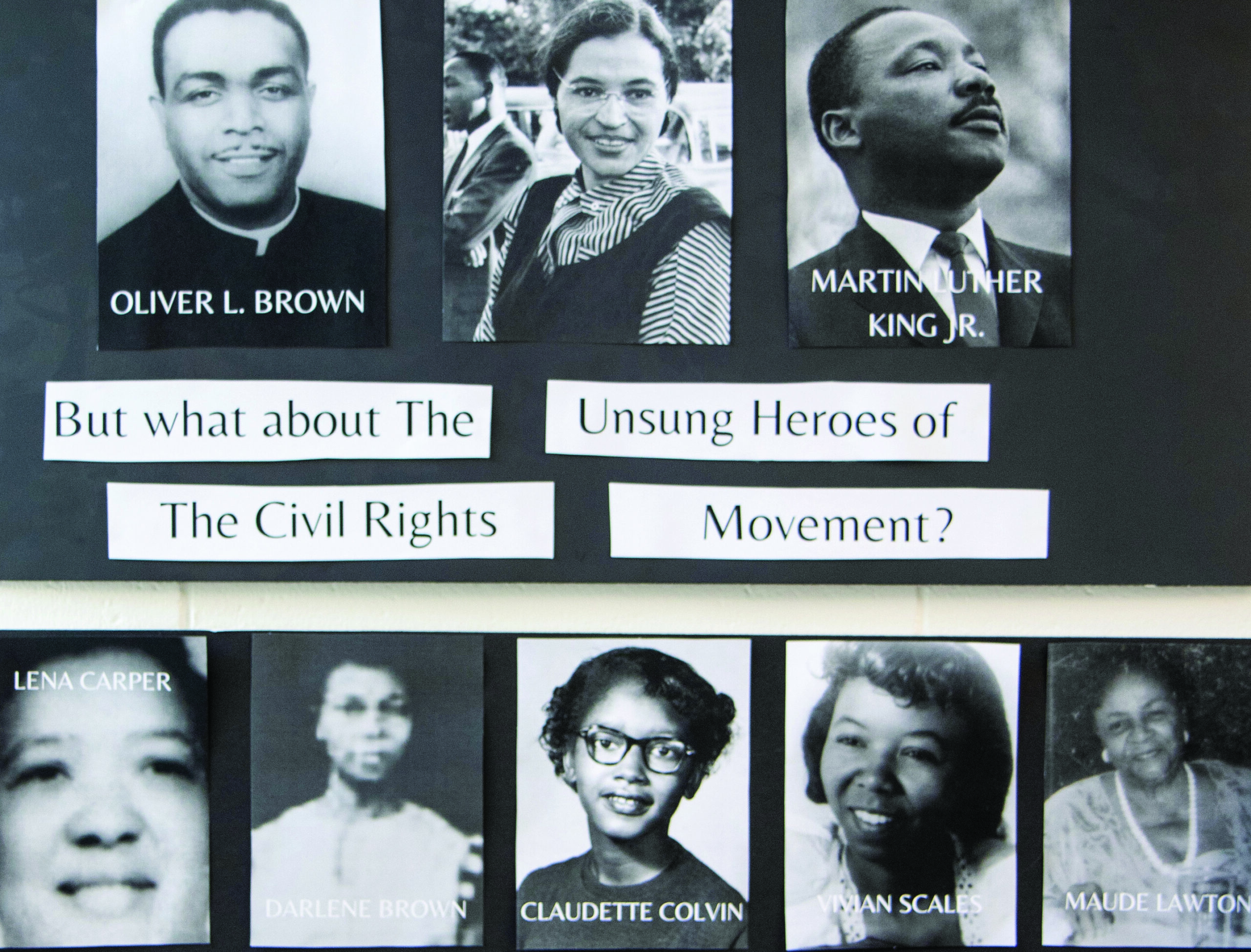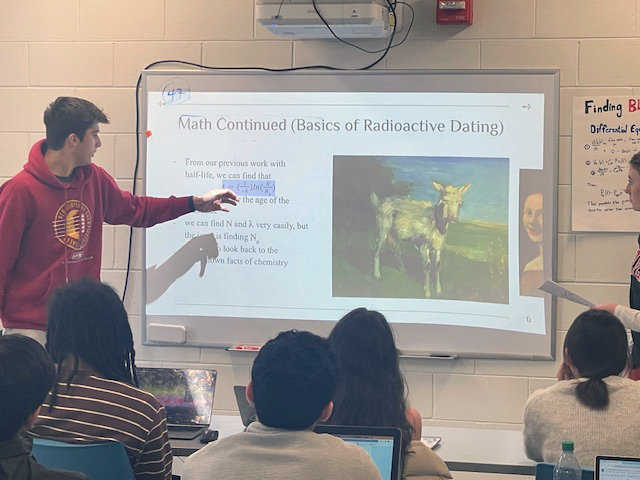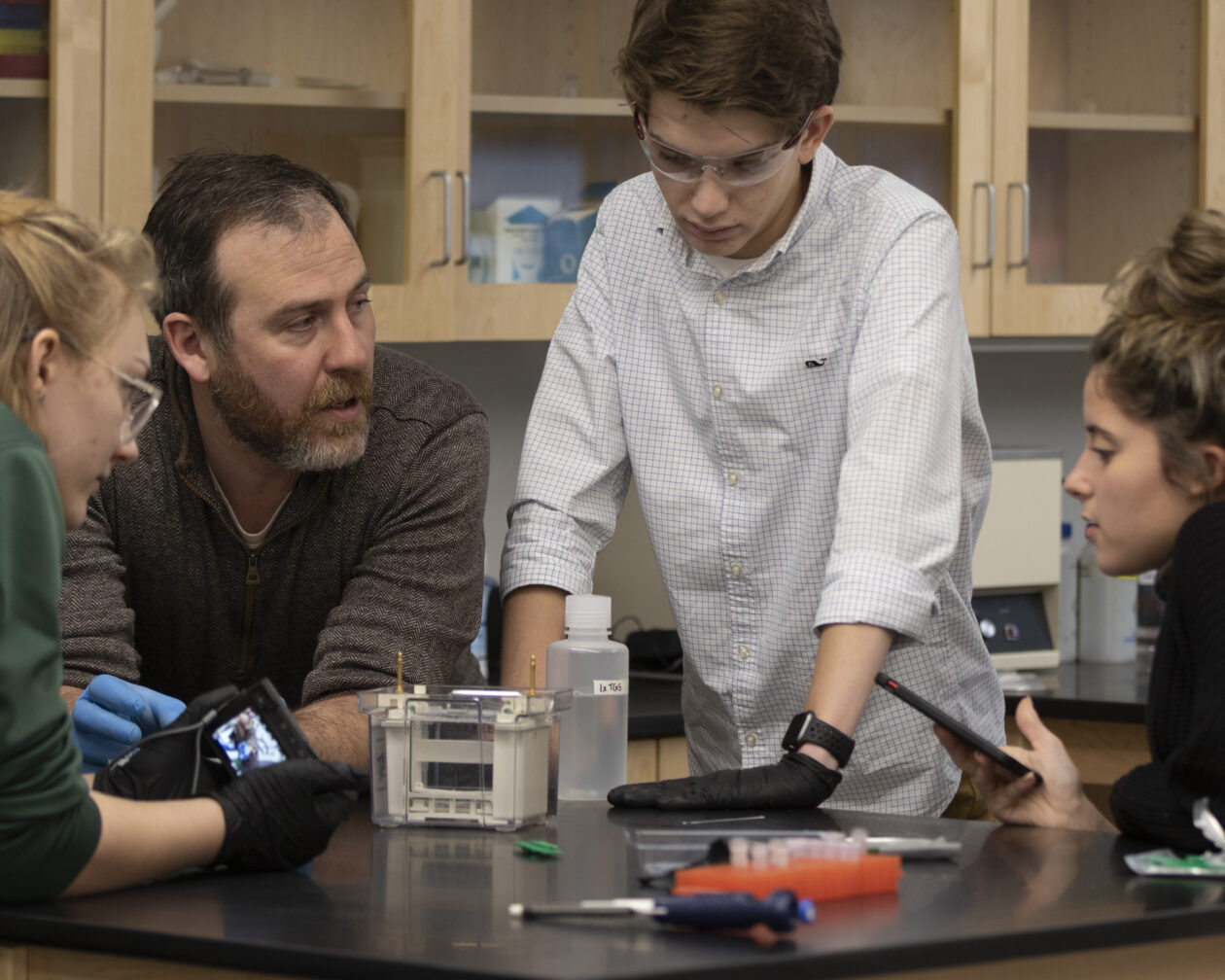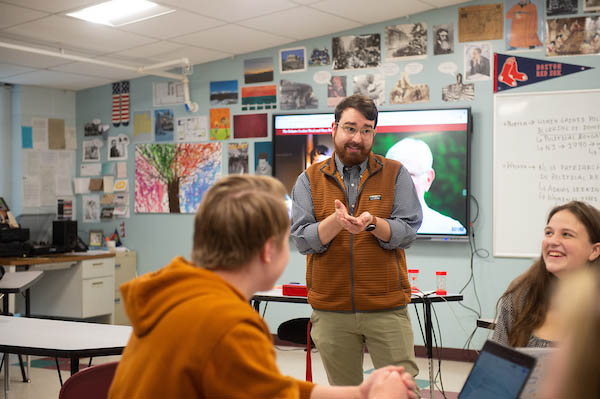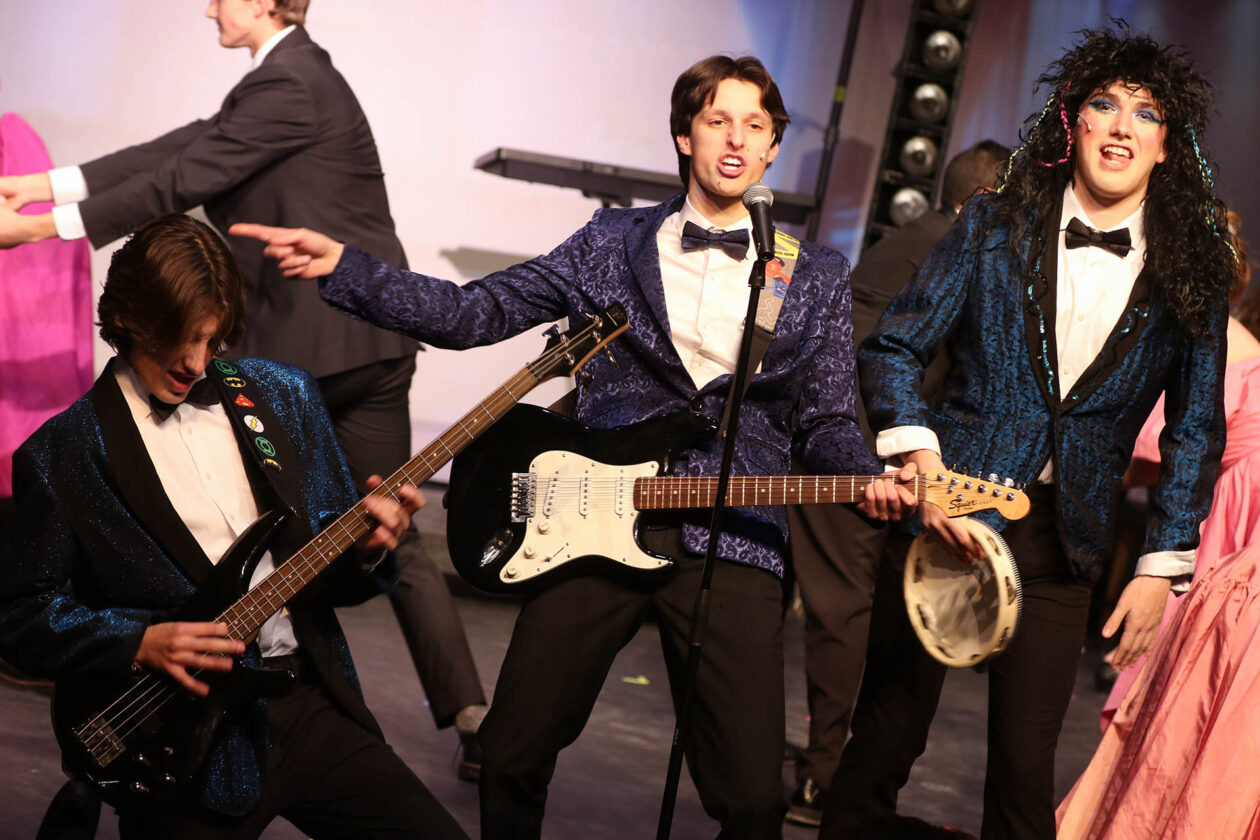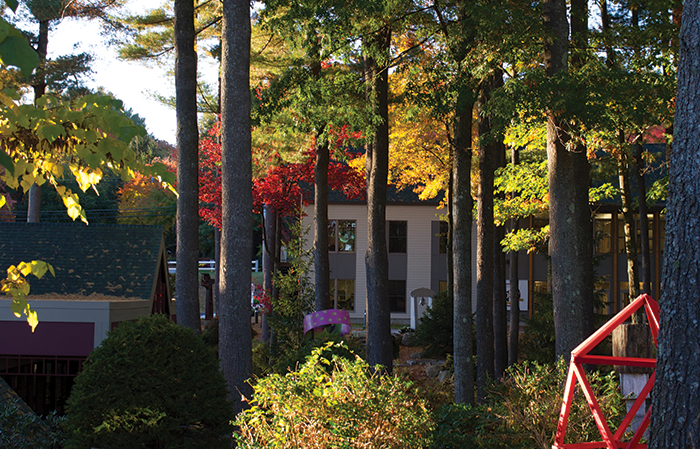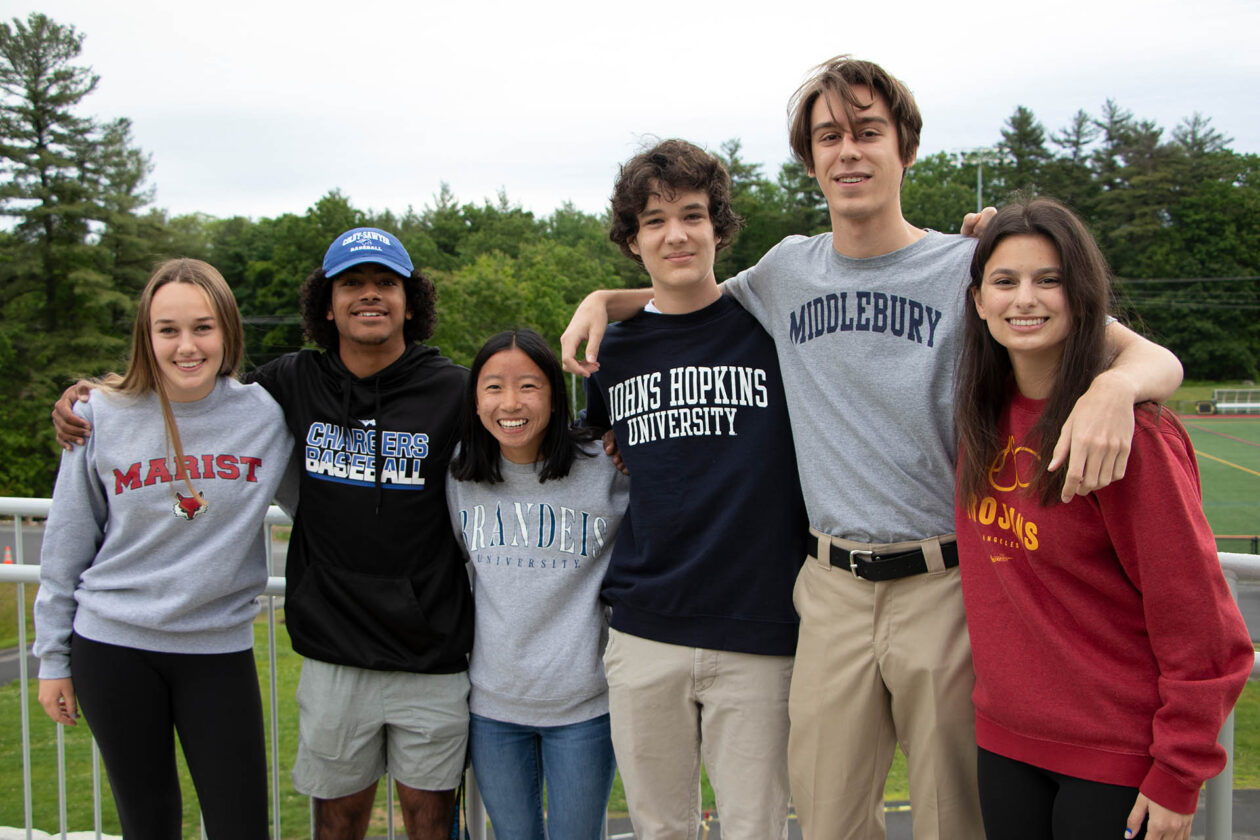Advanced Topics Program
2025-26 Advanced Topics Courses
Advanced Topics Studio Art
Open to: Grades 12
Prerequisite: 2 trimesters of any visual arts course, or with permission of the department chair.
The Advanced Topics Studio Art course is a capstone course for the visual art curriculum at Derryfield. This advanced course provides robust, integrative support for the evolution of students’ creative practices while offering numerous opportunities to establish impactful connections with audiences through their work. Successful students in this class will be those who have developed responsibility for their own learning, have developed a distinguished voice, and have a curiosity and drive to explore deeper questions about the nature of art & society. Embedded within Honors Studio Art, this course is for the student who is interested in organizing exhibitions, refining their established portfolio, and developing their own independent projects.
Advanced Topics English: Exploring Effective Civil Discourse in American Literature and Culture
Open to: Grade 11
In this course, students will explore critical moments in history when the country was polarized over issues such as race, gender and class, in order to define and explore what makes for effective civil discourse. Students will focus, among other topics, on the Civil War and the national conversation on race as well as the emergence of the New Woman and later waves of feminism as lenses into our national debate on freedom. Students will examine moments when an exchange of text, art, and/or action–such as a speech, a protest, a novel, a film, or other media– shifted our understanding, our actions, the law, or even the tide of the culture. Students will ask what is civil discourse and why are some media more effective in a given time than others? In addition to studying historical models, stories, and poems, students will also analyze current events and create their own modes of civil discourse, practicing effective communication that can inform, persuade, illuminate, entertain and transform. Writing in the course will emphasize fine tuning the art of rhetorical analysis, as well as practicing various narrative modes throughout the year. The year will conclude with a student-driven research paper and a final multimedia project.
Literature may include The Narrative of the Life of Frederick Douglass (Douglass); The Awakening (Chopin); The Underground Railroad (Whitehead); The Great Gatsby (Fitzgerald); Just Mercy (Stevenson); Poverty, by America (Desmond); poetry and contemporary short stories.
Advanced Topics English: Literature through Critical Lenses
Open to: Grade 12
Literature through Critical Lenses invites students to take a deep dive into the exploration of literature, ranging from the ancient Greek tragedy to the twenty-first century. This course will offer students the opportunity to spend the year reading novels, plays, poems, and short stories from a broad range of authors, genres, and cultural settings. Potential texts may include Medea, A Doll’s House, Beloved, Mrs. Dalloway, As I Lay Dying, and All the Pretty Horses. Each term, students will explore thematic ideas along with the zeitgeist of an age. Through additional readings in philosophy and psychology, students will develop familiarity with theoretical terms and concepts and employ them to understand the tension reflected in the works studied. Students will examine how a diverse array of thinkers have attempted to answer questions around gender, race, family, loyalty, and ultimately, the self, and we will consider how the specifics of geography, politics, ethnicity, language, gender, economics, and other factors combine to create compelling stories.
The essential questions that will guide the scope of the course are: How does literary form create meaning? How are the social and historical values of a time period reflected in a work? How can students create a personal writing style through effective use of rhetoric? And what diverse ideas exist around texts with regard to literary criticism? This course will emphasize sophisticated analytical writing and speaking skills, and students will focus on understanding and presenting on authorial craft and technique. Guided by our coursework and following their own intellectual pull, students will engage in a year-long project investigating a writer or thematic concept; students will take a deep dive into this exploratory element, eventually creating a digital anthology including art, music, their own critical writing, and scholarly work.
Advanced Topics History: American Public History
Open to: Grades 11 & 12
This course is designed around the notion that history matters to Americans today. Students will explore the ways that Americans make their memories of American history and how those memories shape views of contemporary issues in American life. In this course, students will come to understand the story of American history, but will also become historians as they dive into seven particular debates that have puzzled the best historical minds. Students will interrogate the complex arguments made by professional historians before evaluating the merits of those arguments by investigating the sources and evidence used by those historians. As students develop conclusions about these contentious issues in the American past, they will consider how the public remembers these issues and how they should be remembered. Students will shape historical memory as they develop public interventions related to these topics in modes ranging from museum exhibit designs to web pages. This course will culminate in an individual research project as students choose one major issue discussed throughout the year and conduct their own historical research in physical and digital archives across the country.
Advanced Topics History: United States History Since 1960
Open to: Grade 12
Prerequisite: Completion of US History or AT American Public History
Open only to seniors, US History Since 1960 offers the academic rigor of a college course. It enables students to recognize that recent American history—like historical scholarship at large—doesn’t offer a neat list of “historical lessons” so much as it imparts greater caution about the country’s challenges in the present. The complexity of recent American life, students learn, defies partisan summation even as the political climate has grown vastly more dogmatic. As a result, students come to appreciate that the ultimate fate of the American Republic remains undecided—there is no certain Hegelian curve towards progress; the world’s greatest modern experiment in democratic governance can still fail. Topics include U.S. foreign policy from the Cold War through the War on Terror; the American presidency since John F. Kennedy; and social movements such as the African American battle for civil rights and second wave feminism. The course is reading and writing intensive and culminates in a larger class project designed to “make historical nuance go viral” in the contemporary media.
Advanced Topics Mathematics: Calculus I
Prerequisite: Precalculus
AT Calculus I offers a rigorous study of differential and integral calculus at a college level. Success in Calculus is highly dependent on strong mechanical skills with algebra and trigonometry. That said, our goal in mastering these skills is to go beyond and recognize deeper patterns and abstractions relating to rates of change. This course is a prerequisite to Advanced Topics Mathematics: Calculus II.
Topics of study will include:
- Limits and continuity
- Limit definition of the derivative
- Derivatives of algebraic and trigonometric functions
- Chain rule, implicit differentiation
- Applications in curve sketching, related rates, and max-min problems
- Continuity and the mean value theorem
- Approximating areas with rectangles or trapezoids
- Integration and Riemann sums
- The fundamental theorems of calculus
- Calculus of circular functions, exponential and logarithmic functions
Advanced Topics Mathematics: Calculus II
Prerequisite: AT Calculus I
What skills, habits of mind, and experiences are needed to be an effective mathematician in the 21st century? How can theory, application and modern technology help us answer this question? In this Advanced Topics Calculus course, we will develop a framework for advanced theoretical understanding and application of calculus, and how to apply calculus in fields of study such as engineering, physics, biology, and economics.
Topics of study will include:
- Volumes of revolution and of a known base
- Improper integrals
- Conic sections and the general second degree equation
- Calculus of parametric, polar, and vector functions
- L’Hôpital’s rule and its application to convergence of improper integrals and sequences
- Integration by parts and partial fractions
- Application of integrals to area, volume, length of curve, and surface area
- Analytic solution of variable separable and logistic differential equations
- Solution of differential equations graphically by slope fields and numerically by Euler’s method
- Infinite series of numbers; tests of convergence
- Power series, Maclaurin and Taylor series with Lagrange remainder
Advanced Topics Mathematics: Statistics
Prerequisite: Precalculus
AT Statistics coursework includes three major areas of emphasis: data collection, data description, and data analysis as described below. The course covers many of the same subjects in Statistics, but at greater depth and a faster pace. Instruction is more inquiry-based, and students complete a major project to conclude the course.
Topics of study will include:
- One-variable statistics: measures of central tendency and variability
- Graphs—histogram, box plot, dotplot, stemplot, normal quantile plot
- Two-variable statistics—measures of linearity and transformation to linear graphs
- Scatterplot, residual plot
- Survey Bias
- Types of sampling
- Comparative experiments
- Simulations
- Probability and probability distributions, including binomial
- Normal density curves
- Sampling distributions and the Central Limit Theorem
- Hypothesis tests and confidence intervals for single means and proportions as well as differences between two means or two proportions
- Chi-squared analysis of categorical data
- Power of a test, Type I and Type II errors
Advanced Topics Mathematics: Investment Math
Open to: Grade 12
Prerequisite: Precalculus
This seminar-style course will begin with an exploration of the broader capital markets and an examination of the fundamental principles of investing (time value of money, efficient market hypothesis, risk vs. return, supply/demand dynamics, market cycles, etc.). The focus will then shift to the technical analysis of single security price data as an ideal application of precalculus and other mathematics. Students will be responsible for analyzing a specific stock over the course of the term using the tools developed in the class. Throughout the course, there will be an emphasis on relating current events to the financial markets. The class will explore the power of TradingView’s software. We will learn about some of the many different functionalities that TradingView offers, and we will apply these functionalities to different price series. We will begin to develop our first strategy by optimizing parameters of basic analysis techniques learned in the fall. We will apply an advanced statistical analysis to review our results. Then, we will learn how to code using PineScript. We will then develop hypotheses about what drives the markets and use our ability to code to write algorithmic trading programs that try to capture gains from these observations. We will backtest our programs and evaluate their performance. We will then learn about how to manage a portfolio through the application of many different non-correlated algorithms. Required: a laptop running Windows, Linux, or MacOS. This course is cross-listed with the STEAM Department.
Advanced Topics Computer Science: Software Design with Java
Open to: Grades 11 & 12
Prerequisites: Permission from the teacher
Embedded in the Software Design with Java course, this advanced topic (AT) course allows students with a stronger interest in computer science to learn the Java programming language. AT students study the same topics as listed for the Software Design with Java course, but cover these topics in greater detail. AT students are also introduced to advanced programming concepts, including numerical methods and simulation, computer animation and game programming, and networking / socket programming. Students also learn practical computer skills and learn how to use modern editing, version control, and debugging tools. No specific prior knowledge is required, but having some programming experience and mathematical maturity are beneficial. AT students are assigned additional reading material and given extra programming assignments and assessments for this embedded class.Required: a laptop running Windows, Linux, or MacOS. This course is cross-listed with the STEAM Department.
Advanced Topics Science: Anatomy and Physiology
Open to: Grades 11 & 12
Prerequisites: Biology and Chemistry
The Advanced Topics Anatomy and Physiology course provides an in-depth study of the human body’s structure and function. The curriculum mimics introductory college-level pre-med courses, emphasizing critical thinking, laboratory investigations, and applied knowledge. Students will explore the body’s systems, pathophysiology, and medical applications. This advanced course covers an extensive range of body systems. Each system is examined in detail to understand its components, interactions, and role in maintaining homeostasis. The course provides an in-depth study of cell structure, function, and disease mechanisms. This AT course is distinguished by its rigor, breadth, and depth. Advanced topics such as medical terminology and pathology equip students with a foundation for future studies in medicine or related fields. The course culminates in a capstone project, requiring students to integrate knowledge of multiple systems and apply their understanding to real-world medical scenarios. Through this comprehensive project, students will refine their research and analytical skills while demonstrating mastery of the course material.
Advanced Topics Science: Biology
Open to: Grades 11 & 12
Prerequisites: Biology and Chemistry
The Advanced Topics Biology course is a capstone course for the biology curriculum at Derryfield. This course is comparable to a first-year biology course at the college level. This course is open to all students who did high quality work in Biology and Chemistry (honors and non-honors), and have outstanding motivation and interest in molecular biology. Successful students in this class will be those who have developed responsibility for their own learning.
As part of the biotechnology lab skills component of AT Biology, students complete a series of industry-relevant lab investigations ranging in complexity from DNA extraction to gene editing of bacteria using CRISPR technology. This section of the course is approximately 75% lab based, with the remainder spent discussing concepts, techniques, and ethics related to the use of biotechnology. Throughout the course, students learn to decode technical language in primary scientific literature. In the immunology and microbiology portion of this course, students gain a basic understanding of immune cell types and a range of pathogens. Students participate in group and individual projects utilizing creative as well as scientific approaches to diseases. Specifically, students investigate functions of monoclonal antibodies and develop a novel therapeutic approach for this technology. The project culminates in a formal scientific presentation to a group of industry professionals in addition to their peers and other Derryfield teachers. Students also explore the role of ethics and equity in scientific research.
Advanced Topics Science: Chemistry
Open to: Grades 11 & 12
Prerequisites: Biology and Chemistry
The Advanced Topics Chemistry course is a capstone course for the chemistry curriculum at Derryfield. The course is open to all students who did high quality work in Chemistry or Chemistry Honors and have outstanding motivation and interest in chemistry or the field of science. Successful students in this class will be those who have developed responsibility for their own learning, have mastered the basics of stoichiometry and chemical bonding, and have a curiosity and drive to understand deeper and more subtle chemical questions. AT Chemistry covers selected topics with greater depth and detail, both conceptually and mathematically, including stoichiometry, nuclear chemistry, reaction kinetics, equilibrium, acid/base chemistry, and electrochemistry. Laboratory experiences are similar to those in a first-year college course. In the winter term, students take a deep dive into a specific aspect of nuclear chemistry, interviewing experts in the field and creating a podcast to educate the public about their topic.
Advanced Topics Science: Physics
Open to: Grades 11 & 12
Prerequisites: Physics, current enrollment in AT Calculus I or higher
The Advanced Topics Physics course is a capstone course for the physics curriculum at Derryfield, and is designed for students ready for college-level challenges. The course builds on material covered in the Physics Honors and Physics courses by introducing calculus solutions to previous topics. The course focuses on mechanics, electricity and magnetism, and then moves onto other topics like thermodynamics and fluid mechanics. AT Physics utilizes open-ended laboratory experiments and real-life application projects, requiring students to think critically, test hypotheses, and develop creative solutions to complex problems. In a student-centered environment, AT Physics students showcase mastery of physics in innovative ways, building essential skills like collaboration, problem-solving, and scientific communication.
Advanced Topics Latin: Poetry in the Golden Age of Rome
Open to: Grades 11 & 12
Prerequisites: Latin III Honors, Latin III or Latin IV
In this capstone course, students explore the world of Latin poetry during the fall of the Roman Republic and into the early empire period. Readings are selected from a variety of Roman poets from the period from the late Republic to the early Empire. Authors may include Vergil, Catullus, Ovid, Lucretius, and others. In combination with the main Latin readings, the students explore elements of style in metered Latin poetry from Roman sources such as Cicero and Quintilian. Our units include ancient philosophy, female voices in Roman poetry and a choice unit where students choose the author or genre. Students in classwork and projects engage with modern scholarship in order to connect with the most recent work in classics. The course culminates in a project in which students rewrite the story of Orpheus and Eurydice in meter. The two Advanced Topic courses in Latin are offered in alternating years. This course will next be offered in 2025-26.
AT Spanish: Language and Culture through Literature and Media
Open to: Grades 11 & 12
Prerequisites: Approval of teacher and department chair, typically after Honors Spanish III, Spanish IV or another AT Spanish course
This course is designed for advanced Spanish students interested in attaining fluency in Spanish by exploring major contemporary and historical themes and perspectives from the Spanish-speaking world. We examine authentic sources including literature, film and other media such as news broadcasts, podcasts, music, social media, and television programs. Some titles include medieval and modern works such as La casa de Bernarda Alba by Federico García Lorca, El burlador de Sevilla by Tirso de Molina, El ingenioso hidalgo don Quijote de la Mancha by Miguel de Cervantes, and films including La lengua de las mariposas by Spanish director José Luis Cerda, and the documentary film, Living on One Dollar, by directors Chris Temple, Zach Ingrasci, Sean Leonard and Sean Kusanagi. Students work both collaboratively and independently to research, analyze, and present cultural and literary topics including creating a non-profit organization and accompanying Google Site to address a real-world problem in the Spanish-speaking world. Proficiency in Spanish is developed and enhanced through class discussions, dialogues, debates, formal writing, and presentations as well as through intensive review of language structure, including vocabulary amplification from our readings and other course materials. Students continue to study and be tested on advanced grammar units. This course is taught exclusively in Spanish and students are expected to discuss and write only in Spanish. The two Advanced Topic courses in Spanish are offered in alternating years. This course will next be offered in 2025-26.
